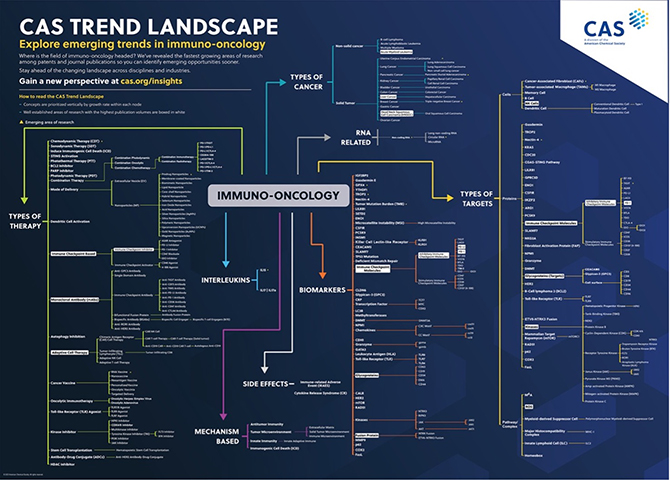Uncover the groundbreaking achievements reshaping modern medicine with a deep dive into the cutting-edge developments in immunotherapy.

Image courtesy of Aleksandr Firstov via Pexels
Table of Contents
Welcome to our Health & Wellness blog section where we aim to provide valuable information on various health topics to help you live a healthy and fulfilling life. In this post, we will delve into the exciting field of immunotherapy and explore its latest advancements and potential benefits for treating various illnesses.
Understanding Immunotherapy
Immunotherapy is a revolutionary treatment approach that utilizes the body’s immune system to fight diseases, including cancer and autoimmune disorders. Unlike traditional treatments like chemotherapy or radiation therapy, which target the disease itself, immunotherapy works to boost the body’s natural defenses to target and destroy abnormal cells.
Types of Immunotherapy
There are several types of immunotherapy, including checkpoint inhibitors, monoclonal antibodies, cancer vaccines, and adoptive cell therapy. Checkpoint inhibitors, for example, help remove the brakes on the immune system, allowing it to recognize and attack cancer cells more effectively.
Advancements in Immunotherapy Research
Researchers and scientists are continuously exploring new avenues in immunotherapy to enhance its efficacy and broaden its applications. Recent advancements include personalized immunotherapy, where treatment is tailored to an individual’s specific genetic makeup and immune profile, increasing its precision and effectiveness.

Image courtesy of www.linkedin.com via Google Images
Another promising development is the use of combination therapies, where different immunotherapy approaches are combined or used in conjunction with other treatments like chemotherapy or radiation therapy to maximize their impact on tackling diseases.
Potential Benefits of Immunotherapy
Immunotherapy offers several potential benefits compared to traditional treatments. It can lead to fewer side effects since it targets specific cells and spares healthy ones. Additionally, immunotherapy can provide long-lasting effects by training the immune system to remember and recognize cancer cells, reducing the likelihood of recurrence.
| Technology | Description | Benefits |
|---|---|---|
| CRISPR Gene Editing | Utilizes CRISPR technology to edit the genes of immune cells, enhancing their ability to target cancer cells. | More targeted and effective treatment with less off-target effects. |
| Personalized Vaccines | Customizes cancer vaccines based on the patient’s specific tumor antigens, boosting the immune response against cancer. | Higher efficacy as the vaccine targets specific mutations in the tumor. |
| Checkpoint Inhibitors | Block the checkpoints that cancer cells use to evade the immune system, allowing the immune system to recognize and kill cancer cells. | Improves immune response against cancer, leading to durable responses in some patients. |
Furthermore, immunotherapy has shown promising results in various types of cancer, including melanoma, lung cancer, and bladder cancer, offering new hope for patients with advanced-stage diseases.
Challenges and Considerations
Despite its promise, immunotherapy does present some challenges and considerations. Not all patients respond to immunotherapy, and those who do may experience unique side effects related to immune system activation.

Image courtesy of www.cas.org via Google Images
Furthermore, the cost of immunotherapy treatment can be high, and insurance coverage may vary depending on the type of therapy and the specific condition being treated. Access to cutting-edge immunotherapy may also be limited in certain regions or healthcare settings.
The Future of Immunotherapy
As research and clinical trials continue to expand our understanding of immunotherapy, the future holds great promise for this innovative treatment approach. Scientists are exploring novel techniques such as gene editing and microbiome modulation to further enhance the efficacy of immunotherapy and broaden its scope of applications.
With ongoing advancements and collaborations in the field of immunotherapy, we can look forward to more personalized and effective treatment options for a wide range of diseases in the years to come.
Overall, immunotherapy represents a cutting-edge approach to healthcare that holds tremendous potential for revolutionizing the treatment of various illnesses. By staying informed and following the latest developments in this field, we can empower ourselves to make informed decisions about our health and well-being.
Frequently Asked Questions
How does immunotherapy work?
Immunotherapy harnesses the body’s immune system to target and destroy abnormal cells, such as cancer cells. It boosts the immune response to recognize and attack these cells effectively, offering a more targeted and less harmful treatment approach compared to traditional therapies like chemotherapy.
What are the different types of immunotherapy?
There are several types of immunotherapy, including checkpoint inhibitors, monoclonal antibodies, cancer vaccines, and adoptive cell therapy. Each type works differently to enhance the immune system’s ability to fight diseases like cancer and autoimmune disorders.
What are the potential benefits of immunotherapy?
Immunotherapy offers fewer side effects compared to traditional treatments, as it targets specific cells while sparing healthy ones. It can also provide long-lasting effects by training the immune system to recognize and remember cancer cells, reducing the risk of disease recurrence.
What are the challenges and considerations of using immunotherapy?
Not all patients respond to immunotherapy, and some may experience unique side effects related to immune system activation. The cost of treatment can be high, and access to cutting-edge therapies may be limited in certain regions. It’s important to discuss these factors with healthcare providers to make informed treatment decisions.
Powered by Texta.ai Blog Automation






